Search Results
Showing results 1 to 20 of 38
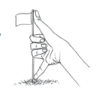
Handy Measuring Ratio
Source Institutions
In this activity, learners use their hands as tools for indirect measurement.
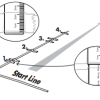
Stride Ruler
Source Institutions
In this activity, learners use their feet to estimate distances. Learners calculate the distance of one step in centimeters by measuring 10 steps at a time to reduce measurement error.

Measuring Blood Pressure in Space
Source Institutions
In this activity (page 105 of the PDF), learners measure heart rate and blood pressure and learn how to obtain consistent measurements during repeated tests.

Measuring Wind Speed
Source Institutions
In this indoor and/or outdoor activity, learners make an anemometer (an instrument to measure wind speed) out of a protractor, a ping pong ball and a length of thread or fishing line.

Sweet Measurements
Source Institutions
In this activity on page 3 of the PDF, learners investigate how much sugar is in a soda. Learners use sugar cubes to measure and calculate the amount of sugar in a bottle of soda.
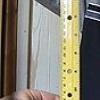
How Fast Are You?
Source Institutions
This activity is designed to let learners measure their reaction time or response time to something they see.
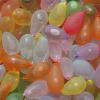
Balloon Impacts
Source Institutions
In this activity, learners measure the diameter of their water balloons, model an impact, measure the diameter of the “crater” area, and determine the ratio of impactor to crater.
Find Someone: Use Math to Learn About Friends
Source Institutions
Create a “Find Someone” list, with about 10 items, each containing a shape, number, or measurement. Can you find someone in the group with hair about 4 inches long? Someone wearing parallel lines?
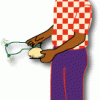
Fruity Electricity
Source Institutions
In this activity, Frankenstein's lab is running out of electricity! Learners use fruit to help Igor find a temporary source of energy to turn on a light.

Globe at Night
Source Institutions
In this international citizen science activity, learners measure their night sky brightness and submit their observations into an online database.

Space Stations: Sponge Spool Spine
Source Institutions
In this activity, learners simulate what happens to a human spine in space by making Sponge Spool Spines (alternating sponge pieces and spools threaded on a pipe cleaner).
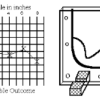
Topographic Investigation: Map an Underwater Surface
Source Institutions
In this activity, learners create a map of a hidden surface using a "sounding stick" -- a technique similar to how underwater maps were once made.
Is It Possible: Estimating Measurement
Source Institutions
In this activity, learners will decide together on a question about how far, long or high the group could reach together.
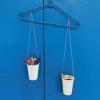
Balancing Act
Source Institutions
In this activity, learners will build thier own balance scale. Learners will explore weight and comparison through this activity.
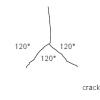
Playground Patterns of Cracks
Source Institutions
In this math activity, learners observe and sketch cracking patterns in pavement.
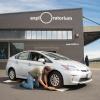
Tired Weight
Source Institutions
Yes, you can weigh your car by figuring out your wheel's tire pressure combined with the "tire's footprint." You'll need someone with a car, driver's license, and safety in mind.

Glaciers
Source Institutions
In this online activity, learners adjust mountain snowfall and temperature to see how glaciers grow and shrink. They will use scientific tools to measure thickness, velocity and glacial budget.
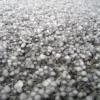
Sizing Up Hail
Source Institutions
In this activity, learners will estimate the sizes of balls to learn how to estimate the size of hail. Learners will compare their estimates to the estimates of their peers and the real measurements.
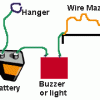
Motor Learning
Source Institutions
In this activity (26th on the page), learners construct an easy-to-build device and test motor learning.
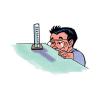
Change in Temperature: Endothermic Reaction
Source Institutions
Learners investigate signs of a chemical reaction when they mix vinegar and baking soda. In addition to a gas being produced, learners also notice the temperature decreases.
